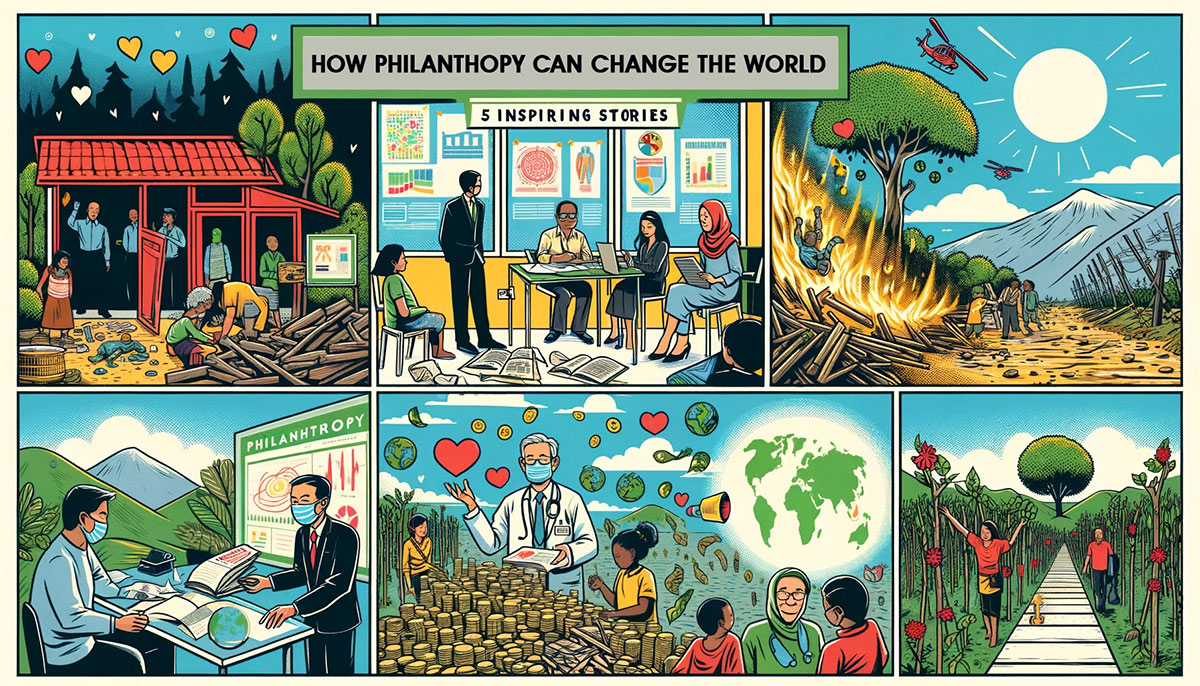Philanthropy is the act of giving time, money or resources to support charitable causes. It’s an important way for individuals and organizations to make a positive impact on society and contribute to the greater good. In this blog post, we will explore everything you need to know about philanthropy, including its definition, types, benefits, how to get started, success stories, common misconceptions, tips for effective giving, and resources and organizations for philanthropy.
Introduction to Philanthropy
Philanthropy has been around for centuries, with roots dating back to ancient Greece and Rome. The word “philanthropy” comes from the Greek words “philo,” meaning love, and “anthropos,” meaning human being. Today, philanthropy continues to play a vital role in our communities, helping to address social issues such as poverty, education, healthcare, environmental conservation, and more.
What is Philanthropy?
Philanthropy can take many forms, including monetary donations, volunteering, advocacy, and fundraising. There are also different types of philanthropy, including individual giving, corporate giving, foundation giving, and community philanthropy. Each type of philanthropy has unique characteristics that shape how it operates and what kind of impact it makes.
Types of Philanthropy
There are several types of philanthropy, each with their own approach to making a difference. Individual giving involves personal contributions made by individuals, while corporate giving refers to donations made by companies. Foundation giving involves grants awarded by private foundations, which are typically established by wealthy families or individuals. Community philanthropy focuses on empowering local communities to take action and solve problems through collective giving.
Why Give Back? The Benefits of Philanthropy
Giving back to your community can have numerous benefits, both personally and professionally. For one, it feels great to help others and make a positive impact on society. Additionally, philanthropic activities can boost employee morale and foster teamwork within businesses. They can also improve public relations and enhance brand reputation. Finally, philanthropy can lead to valuable networking opportunities and open doors to new partnerships and collaborations.
How to Get Started with Philanthropy
Getting started with philanthropy can be overwhelming, but there are plenty of ways to begin. One option is to research nonprofit organizations in your area and find ones that align with your values and interests. Another option is to start small by volunteering at a local food bank or shelter. You could also consider organizing a fundraiser or starting a crowdfunding campaign to raise funds for a cause you care about.
Making a Difference: Success Stories in Philanthropy
There are countless examples of successful philanthropic efforts throughout history. For example, the Bill & Melinda Gates Foundation has invested billions of dollars into global health initiatives, resulting in significant progress towards eradicating diseases like polio and malaria. Similarly, the United Way has helped millions of people worldwide through programs focused on education, income stability, and health. These success stories showcase the power of philanthropy to create real change.
Common Misconceptions About Philanthropy
One common misconception about philanthropy is that only rich people can make a difference. However, this couldn’t be further from the truth. Everyone, regardless of their financial situation, can give back in some way, whether it’s through volunteering, spreading awareness, or simply supporting a cause they believe in. Another misconception is that philanthropy is solely about writing checks. While monetary donations are certainly important, there are many other ways to give back, such as sharing skills and expertise, mentoring, and advocating for policy changes.
Tips for Effective Philanthropic Giving
To ensure your philanthropic efforts are effective, here are some tips to follow. First, identify the issue or cause you want to support and research organizations working in that space. Look for those with proven track records and clear goals. Second, set specific goals and expectations for your giving, such as how much you plan to donate and what outcomes you hope to achieve. Third, evaluate the effectiveness of your giving regularly and adjust your strategy if necessary. Fourth, consider partnering with other organizations or individuals to maximize your impact.
Resources and Organizations for Philanthropy
There are numerous resources available to help you navigate the world of philanthropy. Some useful websites include GuideStar, Charity Navigator, and GlobalGiving, which provide information on nonprofits and their performance. Additionally, there are many professional associations and networks dedicated to philanthropy, such as the Association of Fundraising Professionals and the Council on Foundations. By leveraging these resources, you can become a more informed and effective philanthropist.
Conclusion
In conclusion, philanthropy plays a critical role in creating positive change in our communities. Whether you choose to volunteer, donate, or advocate, there are endless ways to give back and make a difference. By understanding the different types of philanthropy, evaluating effective giving strategies, and utilizing helpful resources, you can become an informed and impactful philanthropist.




